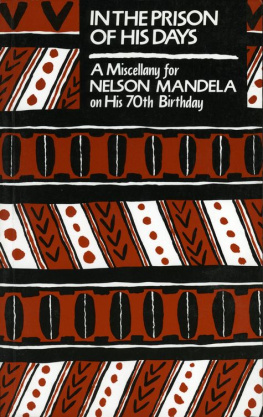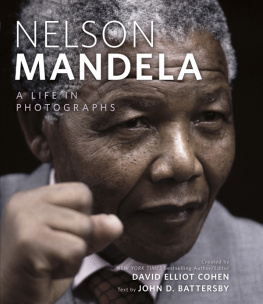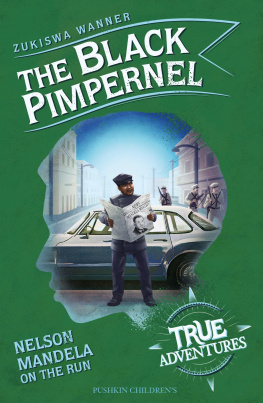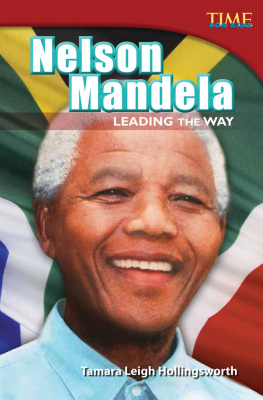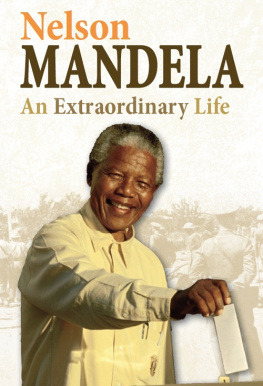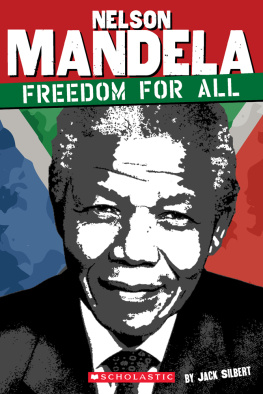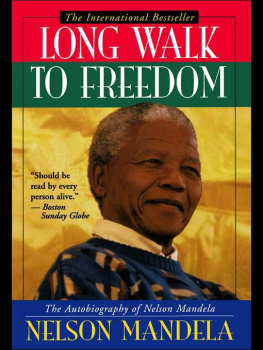IntellectualResponsibility
The miscellany of writings which follows has been brought together to mark Nelson Mandelas seventieth birthday. Given that prison walls have surrounded him in his seventieth year, as in his fiftieth, and given his illness later in the year, no easy celebration could be indulged. To acknowledge the special and difficult circumstances of the occasion, the format of a special issue of a magazine has been adopted. Beginning with an editorial, it includes poems interspersed between fiction and commentary; a moving interview with an ex-prisoner and poet is accompanied by essays in scholarly criticism. Most of the contributors are Irish, because the idea for the book originated with the Irish Anti-Apartheid Movement. But as generous evidence of Mandelas unique appeal to the world at large, we also have very distinguished contributions from England, France, Germany, Hungary, Nigeria, the Soviet Union, and South Africa itself. A theme, the writers responsibility in a world of increasing domination and terror, runs through the miscellany.
This theme, as Chinua Achebe so ably demonstrates, provides even an opportunity for celebration of a kind. The traditional art form (or art practice) of mbari which he describes has provided a model for the merging of different tones and perspectives; mbari allows for the commemoration of life in all its aspects, its good points and its problems. With this kind of precedent, the miscellany has been able to mark Nelson Mandelas long years of imprisonment in a manner which accommodates the directness of Edward Bond alongside the seeming absurd humour of Daniil Kharms arrest, detention, brutality are their implicit points of convergence.
Among the Irish contributors, there is a high concentration on the Southern states of the USA (in Hubert Butler, Desmond Hogan, Benedict Kiely, even Michael Longley in the last of the three poems included here) as if Mandelas plight could be sensitively approached through a region which is more familiar and which nonetheless has in the recent past known dreadful racial prejudice. It is hoped that all of these essays and poems the unmistakable tones of Ben Kiely modulating effortlessly (yet with feeling) from the names of Irish friends to the fathomless vacuity of James Earl Rays crime and punishment, the suavity of John Banville, the striking honesty of Wally Serote in interview will each serve to illuminate the central theme.
A writers notion of honesty, his sustained and demanding negotiations between the world and the word, constitutes a topic of great controversy in the late twentieth century. Intellectual responsibility in the political domain is now a subject of acute concern in the United States, the Middle East, Europe, and the Third World. No political crisis since the end of the Second World War has made a more powerful and eloquent demand on the writers attention than that fomented by the increasingly violent apartheid regime of South Africa. Many have declined to respond. We are tempted at times to quote W. H. Auden:
Intellectual disgrace
Stares from every human face.
The poem from which these lines are taken, In Memory of W. B. Yeats, was written on the eve of the War, at the end of what Auden elsewhere called a low dishonest decade. But, in practice, not all writers and intellectuals have declined all challenges. For example, Samuel Becketts translation of the Surrealist declaration of 1934 is only one of several pieces on the topic which he rendered into English for Nancy Cunards massive NegroAnthology. The recovery of this piece should prompt a reconsideration of the precise political milieu which Beckett encountered when he began what has turned out to be a life-times sojourn in France. It is here reproduced in this homage to Nelson Mandela by the translators express permission.
All the contributors bring a sample of their work as homage to a truly great man. (In the case of Kharms, the active contributor is of course the translator; in the case of Austin Clarke, it is to his son Dardis to whom we are immediately grateful.) Most of the work does not impinge directly on the state of South Africa, and yet the writings gathered here show how Irish writers and others have responded to the challenge of racism. This little anthology calls for unflinching attention to the moral scandal symbolised in Nelson Mandelas life imprisonment. It offers no bouquet of verbal tributes and few felicitations , because only those who are prepared to think astringently can presume to advise, as Auden, did:
In the prison of his days
Teach the free man how to praise.
Nelson Mandela is such a man. Greetings and praise will be fully appropriate only on the day of South African liberation. Then we will build a new mbari together.
W. J. Mc Cormack October1988
OnBehalfofNelsonMandela
In Dublins Merrion Square a sculpture honours the most famous political prisoner of our time, Nelson Mandela. Irelands gesture expresses the extraordinary, the historic impact which the life of a man incarcerated in remote South Africa has had on the international community. And this book is but one of innumerable tributes in celebration of Mandelas birthday on 18 July 1988. Mandela would not want to be singled out, but during more than a quarter of a century in jail he has become a symbol of South Africas uniquely oppressed society and the embodiment of his peoples prolonged struggle to be free.
The South African government hoped it had crushed that struggle by sentencing Mandela and other leaders to life imprisonment and by outlawing their organisation, the African National Congress. Yet today the ANC (founded in 1912) is acknowledged as the most powerful force fighting apartheid. It has done so through years of bitter unrest and ever more savage states of emergency. And despite the banning of books about Mandela it is even illegal to quote him or to display his portrait young South Africans born long after he disappeared behind prison walls regard him as their authentic leader. His almost legendary reputation has been enhanced by reports from men who have served alongside him on Robben Island and from the foreign visitors rarely permitted to see him.
Born into the royal family of the Tembu people in the Transkei, Mandela was brought up with a sense of responsibility. But he had a taste for adventure, and his Xhosa name (Rolihlahla) appropriately means stirring up trouble. (It was an English woman teacher who, recoiling at the Xhosa, called him Nelson.) To close friends, he is Madiba, his clan name.) After a college education cut short by a students strike, he turned his back on the prospect of chieftainship and escaped to the thrusting city of Johannesburg, where he found himself among thousands forced to live in locations or shanty towns and subjected to continual harassment from police under the hated pass laws.
His political education had begun and, encouraged by a new friend Walter Sisulu, he joined the ANC. With Oliver Tambo they formed a remarkable team. (Sisulu was to remain at Mandelas side through much of their imprisonment while Tambo was to lead the struggle from exile.) Joining other young African nationalists, they formed a Youth League to galvanise the somewhat conservative ANC. They sustained a policy of non-violence even in confronting the intensifying violence of the immensely powerful Afrikaner state. When 8,500 men and women most of them African but with significant Indian support, and a handful of white volunteers courted imprisonment, Mandela, learning to control his own hot temper, was appointed Volunteer-in-Chief of the Defiance Campaign.
Among organisers given a suspended sentence Mandela, like other leaders, was repeatedly banned from political activity. But he had meanwhile qualified as an attorney and established a partnership with Tambo. If they had not already been rebels against apartheid, said Tambo, their experiences as lawyers would have remedied that deficiency. Every case, every visit to the prisons, reminded them of the suffering and humiliation burning into their people. The laws, Mandela said, were immoral, unjust and intolerable.

